Luxembourg is steadily increasing its social security coverage to include a broader percentage of its population.
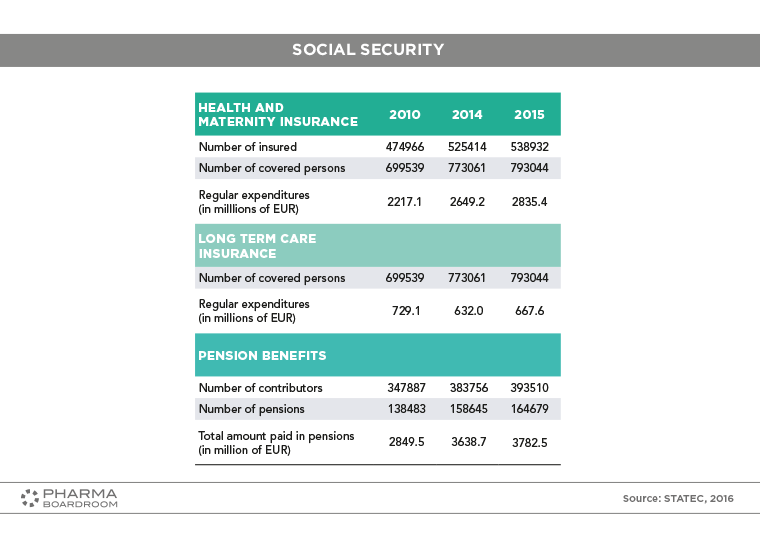
Luxembourg has one of the highest health expenditures per capita in the world; second only to the USA.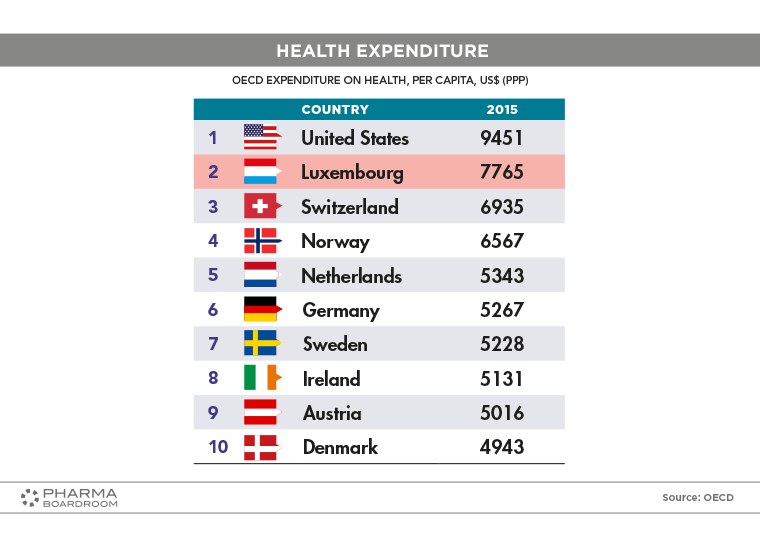
A whopping 44.5% of those working in Luxembourg are non-nationals; a percentage way ahead of anywhere else in Europe.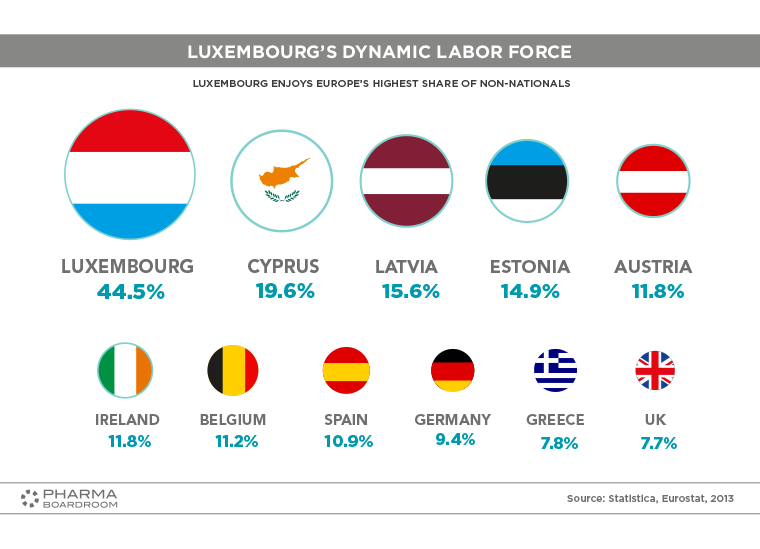
This chart shows how Luxembourg's key life sciences institutions have evolved and helped make the Grand Duchy such an important industry hub.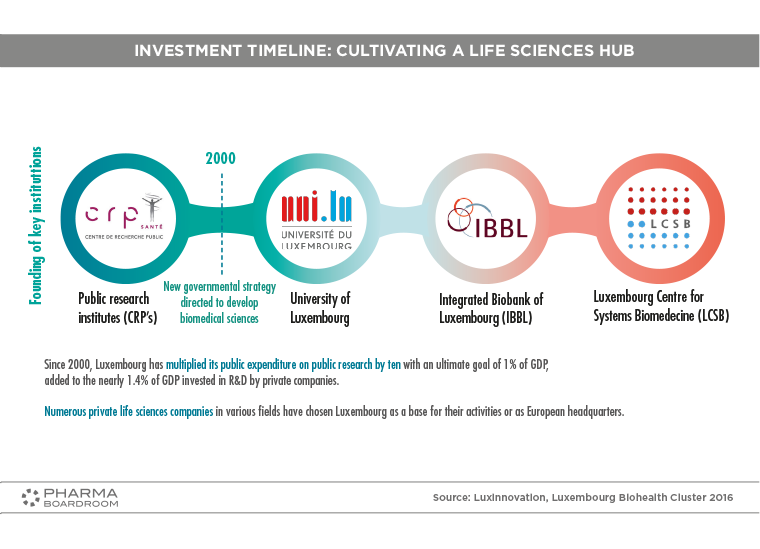
The number of hospital beds available in Luxembourg has stayed at similar levels since the turn of the millennium.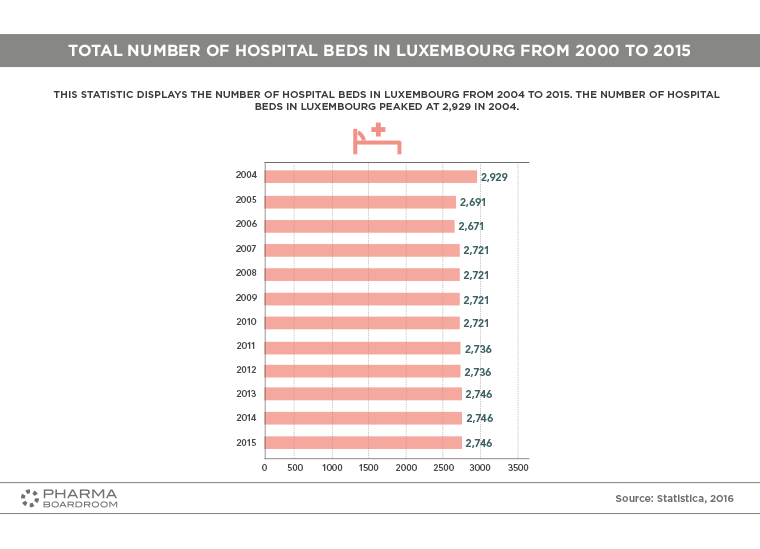
In contrast to the numbers of hospital beds, the number of physicians employed in Luxembourg has grown year-on-year since 2000.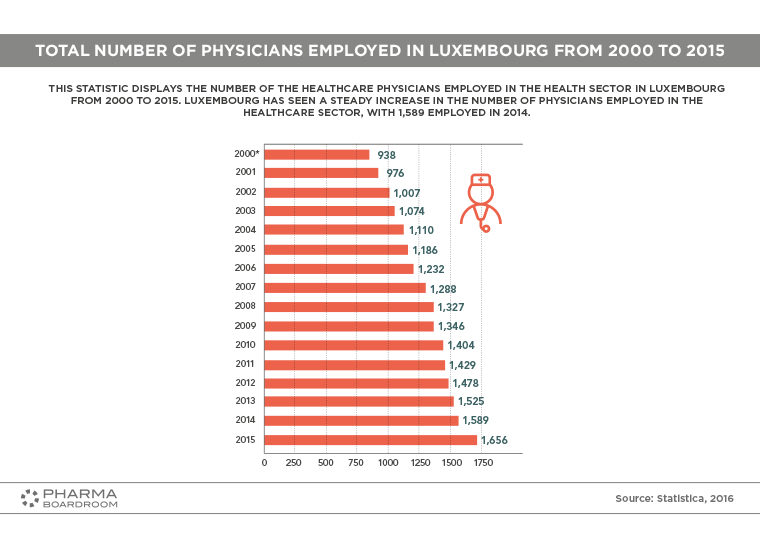
Luxembourg's position in Europe, bordering Belgium, France and Germany, makes it a key strategic hub.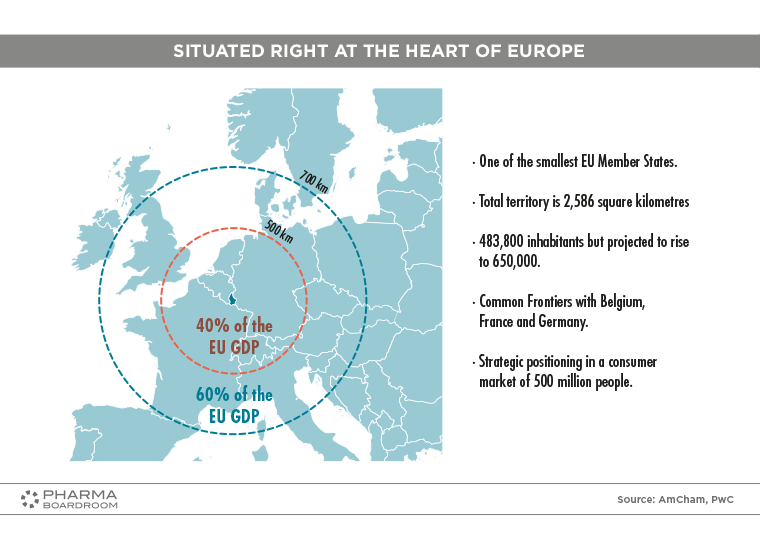
Luxembourg's macroeconomic profile paints a picture of a small but economically healthy country.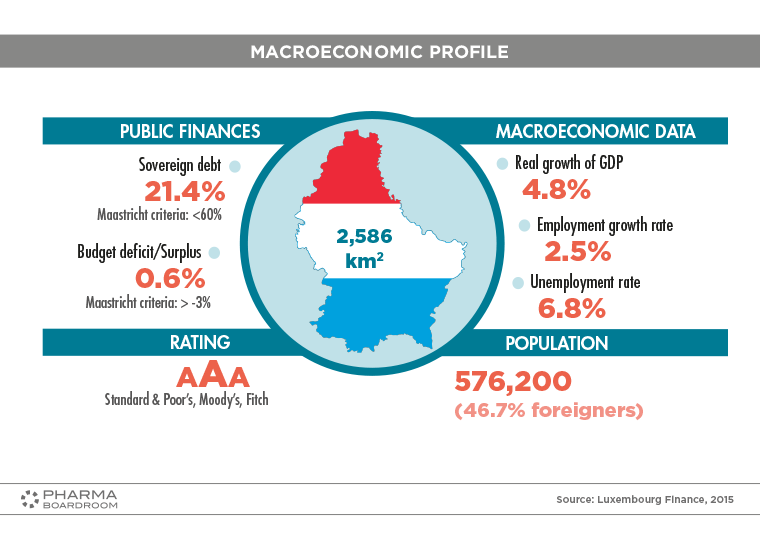
In terms of digital infrastructure, Luxembourg is able to compete with the best in the world.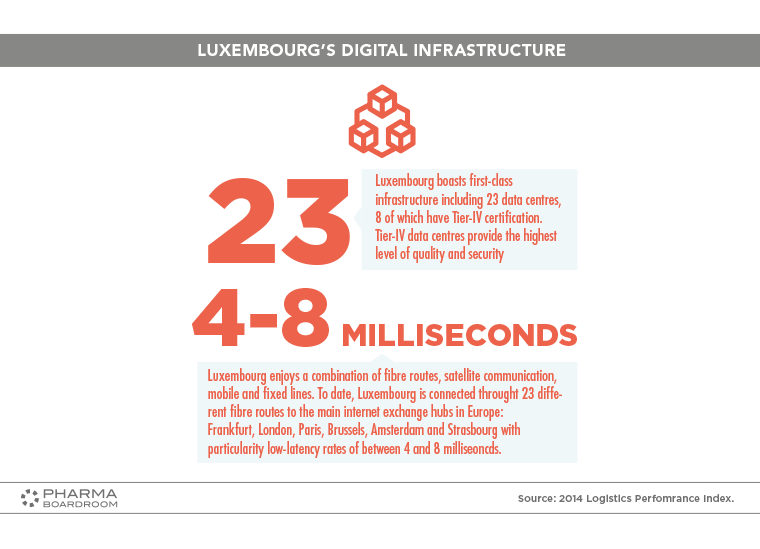
Luxembourg is a truly international country, with almost half of its population coming from outside its borders. Portugal is the most represented foreign nationality, followed by France and Italy.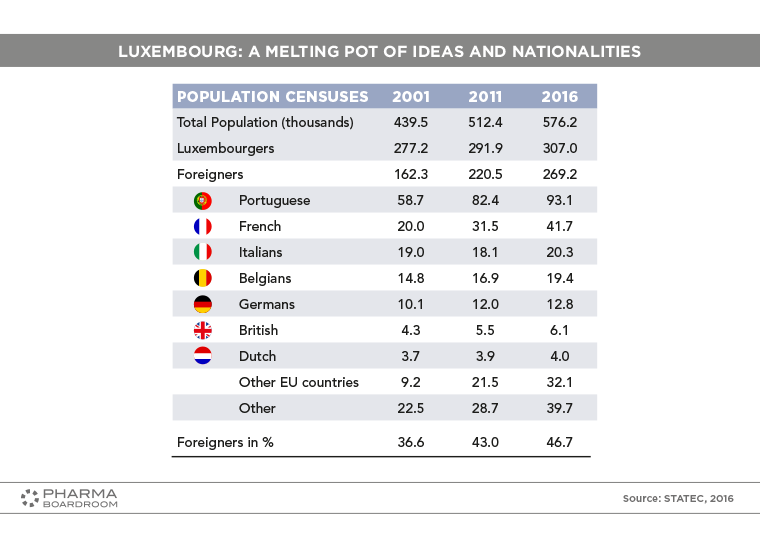
Luxembourg's impressive infrastructure, centred around the Lux-Airport, has helped make it a major pharma logistics hub.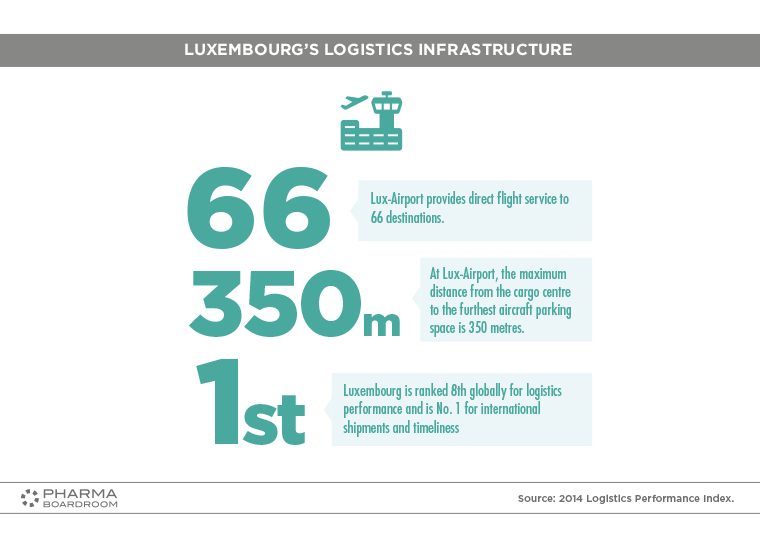
Luxembourg ranks first in the world for technological readiness.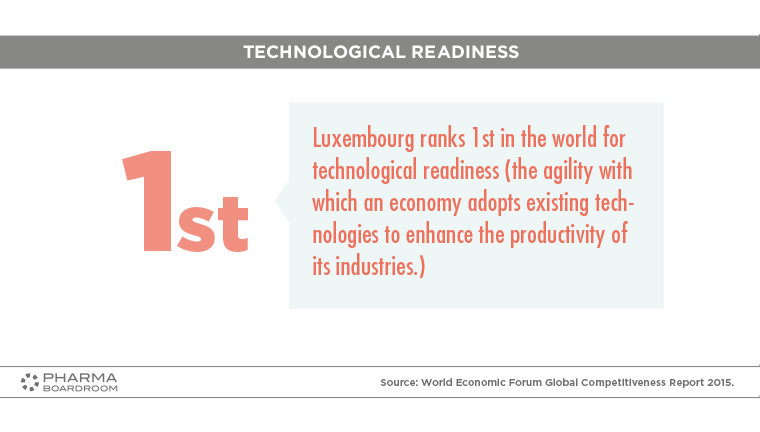
Luxembourg's research reputation is burgeoning, with a growing number of world-class institutions attracting some of the globe's best researchers.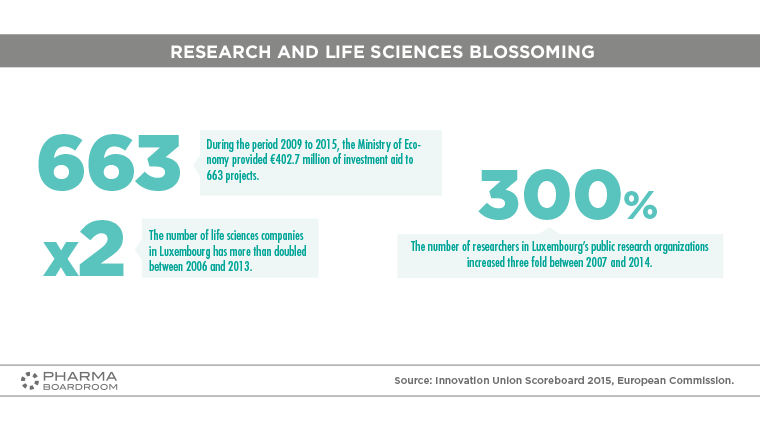
Talent competitiveness is another string to Luxembourg's bow.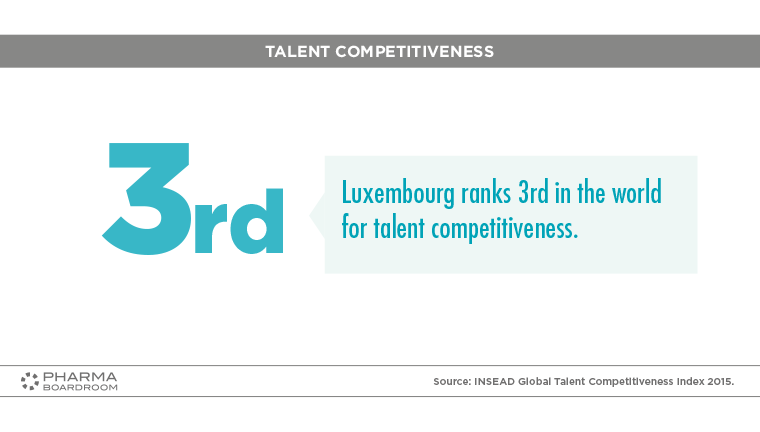
Luxembourg also ranks extremely highly for innovation competitiveness.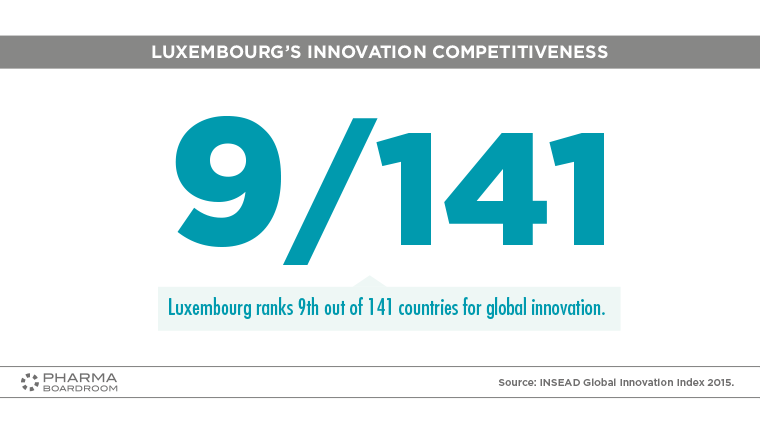

Luxembourg has one of the highest health expenditures per capita in the world; second only to the USA.

A whopping 44.5% of those working in Luxembourg are non-nationals; a percentage way ahead of anywhere else in Europe.

This chart shows how Luxembourg's key life sciences institutions have evolved and helped make the Grand Duchy such an important industry hub.

The number of hospital beds available in Luxembourg has stayed at similar levels since the turn of the millennium.

In contrast to the numbers of hospital beds, the number of physicians employed in Luxembourg has grown year-on-year since 2000.

Luxembourg's position in Europe, bordering Belgium, France and Germany, makes it a key strategic hub.

Luxembourg's macroeconomic profile paints a picture of a small but economically healthy country.

In terms of digital infrastructure, Luxembourg is able to compete with the best in the world.

Luxembourg is a truly international country, with almost half of its population coming from outside its borders. Portugal is the most represented foreign nationality, followed by France and Italy.

Luxembourg's impressive infrastructure, centred around the Lux-Airport, has helped make it a major pharma logistics hub.

Luxembourg ranks first in the world for technological readiness.

Luxembourg's research reputation is burgeoning, with a growing number of world-class institutions attracting some of the globe's best researchers.

Talent competitiveness is another string to Luxembourg's bow.

Luxembourg also ranks extremely highly for innovation competitiveness.







